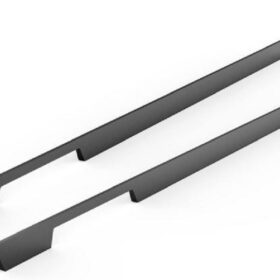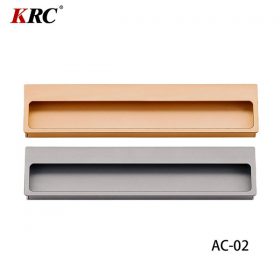The Environmental Impact of Kitchen Counter Handles
The kitchen is one of the most important rooms in a home, and the counter handles are a key part of any kitchen design. Not only do they add a touch of style, but they also play a vital role in the functionality of the kitchen. However, the environmental impact of kitchen counter handles is often overlooked.
Material Matters
The environmental impact of kitchen counter handles depends largely on the material they are made of. Some materials, such as stainless steel and aluminum, are relatively easy to recycle, while others, such as plastic and glass, are more difficult. Additionally, some materials, such as granite and marble, require more energy to produce than others, such as laminate.
Manufacturing Processes
The manufacturing process of kitchen counter handles can also have a significant environmental impact. Some processes, such as casting and forging, require more energy and water than others, such as extrusion and injection molding. Additionally, some processes, such as electroplating and painting, can release harmful chemicals into the environment.
Disposal
When kitchen counter handles are no longer needed, they must be disposed of properly. Some materials, such as stainless steel and aluminum, can be recycled, while others, such as plastic and glass, must be landfilled. Landfilling can have a negative impact on the environment, as it can pollute groundwater and soil, and release methane gas, a potent greenhouse gas.
Sustainable Options
There are a number of sustainable options available for kitchen counter handles. Some of these options include:
– Recycled materials: Kitchen counter handles made from recycled materials, such as stainless steel and aluminum, have a lower environmental impact than handles made from virgin materials.
– Renewable materials: Kitchen counter handles made from renewable materials, such as bamboo and cork, have a lower carbon footprint than handles made from non-renewable materials.
– Low-energy manufacturing processes: Kitchen counter handles manufactured using low-energy processes, such as extrusion and injection molding, have a lower environmental impact than handles manufactured using high-energy processes.
– Non-toxic materials: Kitchen counter handles made from non-toxic materials, such as stainless steel and aluminum, are less likely to release harmful chemicals into the environment.
The environmental impact of kitchen counter handles is a complex issue, but there are a number of things that can be done to reduce the environmental impact of these products. By choosing sustainable materials, manufacturing processes, and disposal methods, we can help to protect the environment for future generations.
-
2024-09-14Exploring the Different Types of Modern Closet Door Pulls and Their Applications
-
2024-09-14How Cabinet Door Pull Handles Support High-Traffic Areas
-
2024-09-06Cost-Benefit Analysis of Investing in High-Quality Long Wardrobe Door Handles
-
2024-09-04How Flat Cabinet Handles Enhance Modern Interior Design
-
2024-11-29Top Trends in Modern Kitchen Cabinet Pulls for 2024
-
2024-11-28The Ultimate Guide to Modern Kitchen Cabinet Pulls- Materials, Styles, and Tips
-
2024-11-27Elevate Your Kitchen Design with These Must-Have Modern Cabinet Pulls
-
2024-11-26Sleek and Stylish- The Best Modern Kitchen Cabinet Pulls for a Contemporary Look






